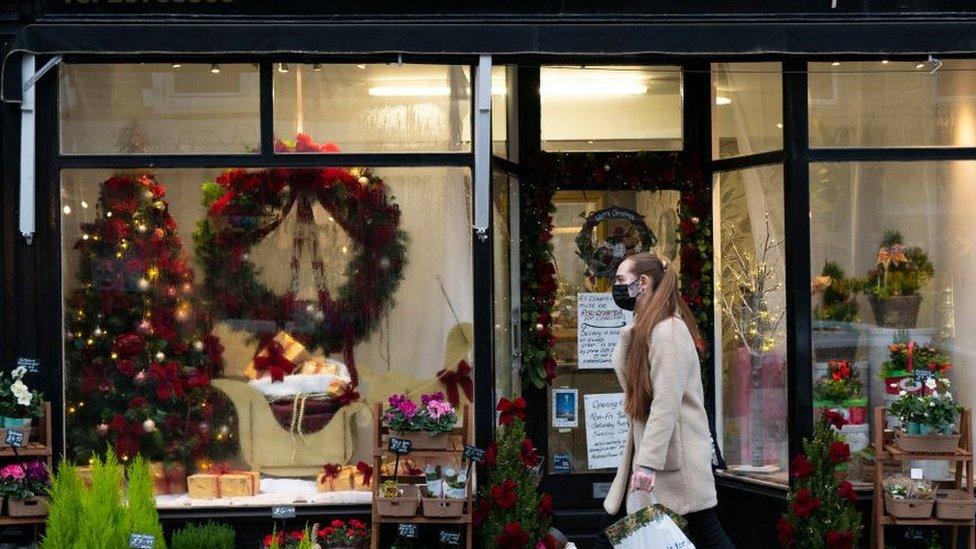Coronavirus: Business support increased by £110m
- Published
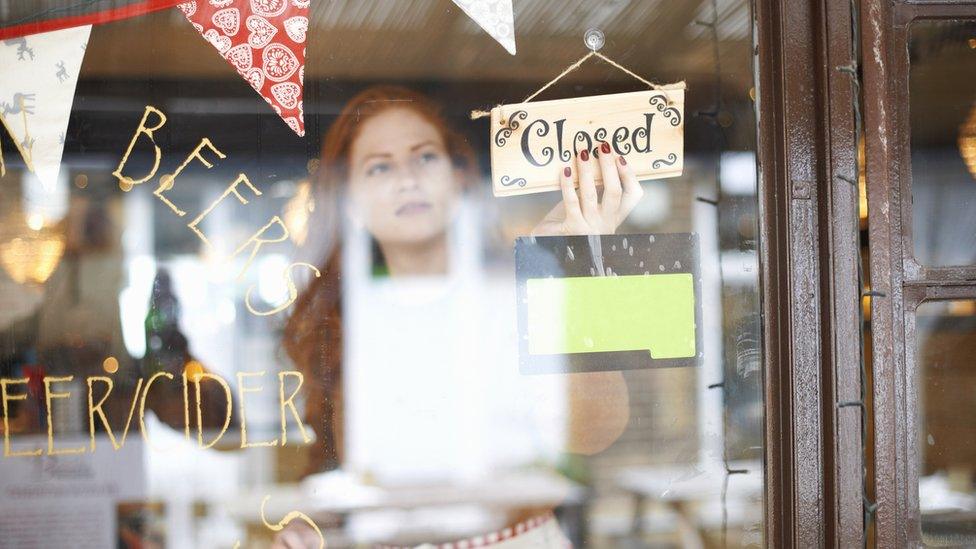
All non-essential retail will close from the evening of Christmas Eve, and all hospitality premises by 18:00 GMT on Christmas Day
An extra £110m is being offered to businesses affected by the latest lockdown rules, the Welsh Government has announced.
The grant is on top of the £340m already announced at the end of last month.
The additional money will pay grants to hospitality and non-essential retail through the business rates system.
Tourism, leisure and supply chain businesses will be eligible if turnover has fallen by 40% or more.
Under the new restrictions, all non-essential retail will close from the evening of 24 December and all hospitality premises by 18:00 GMT on Christmas Day.
From 28 December people will be told to stay home with all but essential shops closed in a bid to curb the spread of coronavirus.
A number of Welsh Conservatives have said the nationwide rules are "disproportionate" in areas with low infection rates.
Opposition parties have also criticised the Welsh Government for not yet allocating hundreds of millions of pounds in additional funding from the UK Government.
Eluned Morgan, the Minister for Mental Health, Wellbeing and the Welsh Language, said about £20m had already been paid out, adding that the scheme offered more generous payments than the one in England.
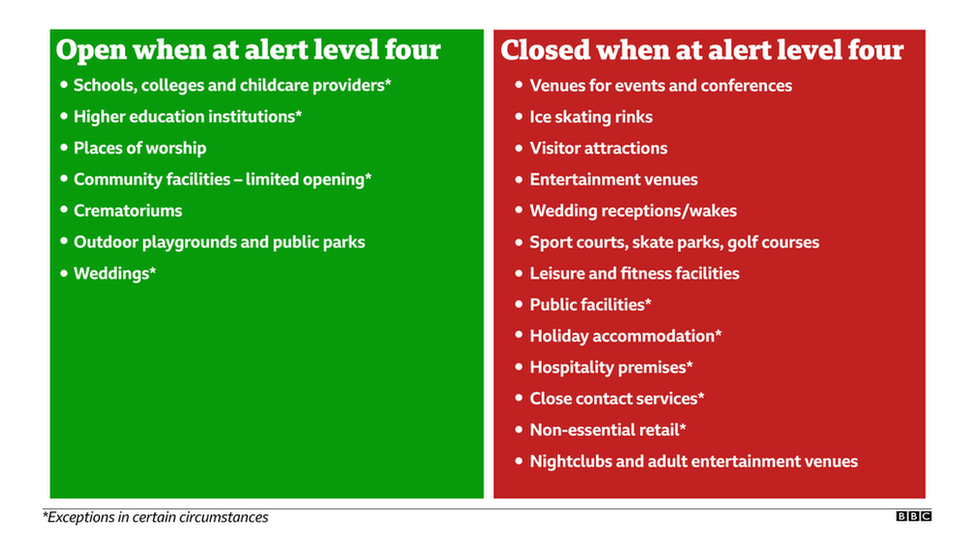
There will be a post-Christmas lockdown in Wales from 28 December
Plaid Cymru's economy spokeswoman Helen Mary Jones said the additional support for businesses was welcome but more details were needed about the scheme.
"One thing that we've been asking for in particular is to acknowledge that for some businesses, they just need to stay closed until March," she said.
"And we want to be sure that this new package that the government is bringing forward is going to enable those businesses to hibernate.
"We know now that the furlough scheme will be available and that will be a big help, but businesses still have their fixed costs, rents to pay, maintenance and so on."
She added the scheme needed to be more targeted at the right businesses rather than "first come, first served".
- Published18 December 2020
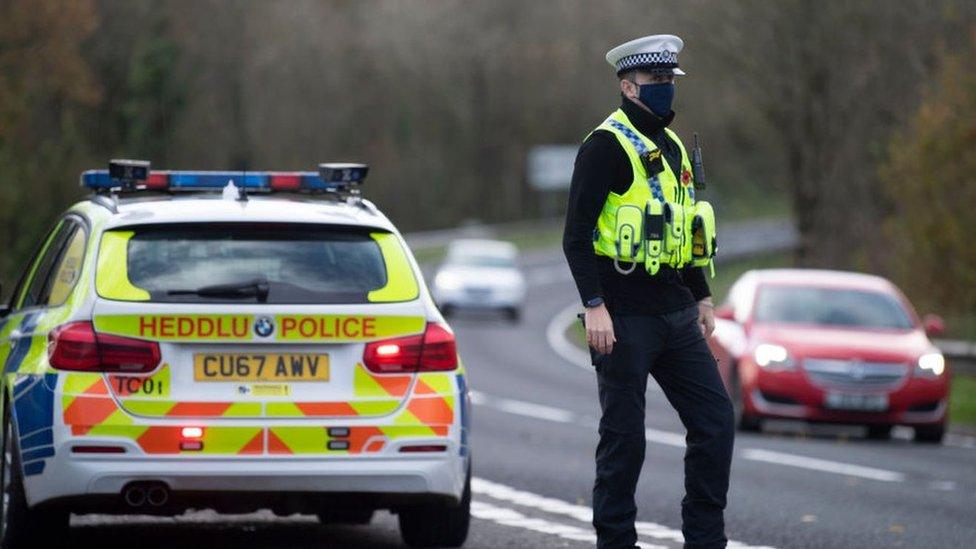
- Published28 October 2020

- Published28 September 2020
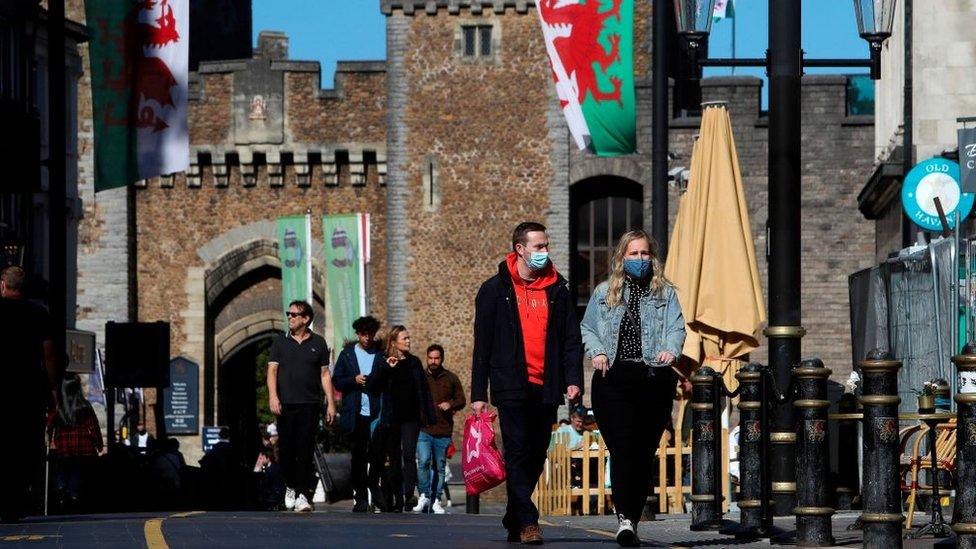
- Published24 November 2020

- Published16 December 2020
